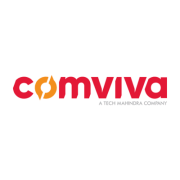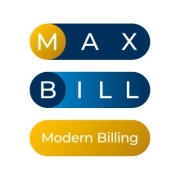Partner Relationship Management solutions assist businesses in managing and optimizing relationships with their partners. By streamlining communication and collaboration, PRM ensures efficient partner engagement and improved business outcomes.
PRM software caters to companies by facilitating effective collaboration and communication with their partners. It simplifies complex processes by offering a centralized platform for managing partner data, tracking performance, and automating workflows. Companies adapt PRM when they require enhanced partner engagement to increase channel sales and expand market reach, leveraging insights from successful peer implementations. Users commonly note the improved channel performance metrics and streamlined partner onboarding procedures provided by these solutions.
What are the critical features of a PRM solution?Industries like technology, manufacturing, and retail implement PRM solutions to optimize partner relationships, streamline sales processes, and provide valuable insights for strategic decision-making. In manufacturing, PRM systems are used to manage large networks of distributors and suppliers. Technology firms benefit from these solutions by using them to enhance the collaboration between different partner segments.
PRM solutions are helpful for organizations looking to strengthen their partner ecosystems. By improving communication and collaboration, these solutions enable businesses to harness the full potential of their partnerships, ultimately driving revenue growth and market expansion.
| Product | Market Share (%) |
|---|---|
| PartnerStack | 12.9% |
| Impartner PRM | 11.6% |
| impact.com | 9.0% |
| Other | 66.5% |



































































Partner management is important because it can ensure channel managers avoid duplication within the company and streamline all of their partner sales processes.
Many businesses rely on partner companies to sell their products on their behalf as part of a channel strategy, in addition to or instead of using a direct distribution channel. These indirect channels include: value-added resellers, merchants, consultants, managed service providers, systems integrators, original equipment manufacturers, or independent software vendors.
A company can use partner relationship management to create a successful business by making use of the automation of critical processes, like lead assignment, self-service portal access, and training programs. Partner relationship management enables you to manage both your relationships with partners and their relationships with you while effectively assisting businesses in streamlining their overall operation. Partner relationship management is designed to hasten the uptake, interest, and sales of your products. Because partners can more efficiently serve all clients, the end result is happier partners who sell more products.
PRMs can sometimes be integrated with CRMs, but they are most commonly separate software solutions. CRM (customer relationship management) software enables businesses to keep track of communications between a company and its prospective and current clients. All pertinent customer data, including contact details, history, and summaries of transactions, are stored as a living record in the CRM database.
CRM software is not intended for managing your partner ecosystem. You could say PRM is a specialized form of CRM, focused on optimizing partner channel sales. PRM software manages a company's relationships with its indirect sales teams.
In short, PRM software is concentrated on getting a partner to sell on your behalf, as opposed to CRM software, which is designed to get an end customer to make a purchase from you. You may need both tools if your company uses both direct and indirect sales channels in a hybrid selling program.
A partner relationship management (PRM) system is a class of technologies used by businesses to streamline, improve, amplify, and reinforce business operations with their indirect partners in order to achieve mutual growth. PRM systems give users visibility into and control over complex channel organizations. Each partner has access to a private site through the use of the software, where they can access documents, marketing materials, market development funds (MDF), opportunities, and business deals.
Additionally, partner relationship management systems provide automated, multitiered operation methods that will reduce resource investments and boost sales opportunities. More sales prospects will result in a larger market share and a higher level of satisfaction among the partner network.
PRM systems are becoming a crucial component of effective channel management and partner programs, being used in everything from joint business planning and market development fund administration to onboarding and training channel partners.
Implementing a PRM solution can enhance collaboration with partners, improve communication, and streamline processes. It offers valuable insights into partner performance, helping you optimize strategies for revenue growth. You can automate administrative tasks and increase efficiency, allowing your team to focus on core business activities. By fostering a transparent environment, PRM empowers partners to achieve better outcomes, strengthening your overall ecosystem.
What Features Should You Look for in PRM Software?When selecting PRM software, prioritize robust analytics, user-friendly interfaces, and seamless integrations. Look for customizable partner portals that offer training and resources to empower partners. Having a centralized dashboard for performance tracking is essential. Ensure that the software provides automated onboarding processes and robust contract management. Strong customer support and scalability are key to meeting your evolving business needs.
Why Is Partner Enablement Important in PRM?Partner enablement is crucial for maximizing the potential of your partner networks. By providing training, resources, and support through a PRM platform, you can empower partners to sell more effectively and efficiently. This not only strengthens your partnerships but also boosts revenue. Enabling partners with the right tools and information ensures they can deliver value to customers, reinforcing your brand’s reputation and expanding market reach.
How Can PRM Improve Communication with Partners?PRM solutions enhance communication by offering a centralized platform for sharing information and resources. Through real-time updates and notifications, you can keep partners informed about new developments, product updates, and promotional activities. Efficient communication channels within a PRM ensure that partners have quick access to support and feedback. This fosters a collaborative environment and strengthens your partner relationships.
What Is the Role of Analytics in Partner Relationship Management?Analytics play a pivotal role in PRM by providing insights into partner performance and market trends. With detailed reports and data visualization, you can make informed decisions to optimize strategies. Analytics help identify high-performing partners, enabling you to allocate resources effectively. By understanding the data, you can adjust your approach to enhance partner engagement and drive better outcomes. Robust analytics facilitate continuous improvement and strategic planning.